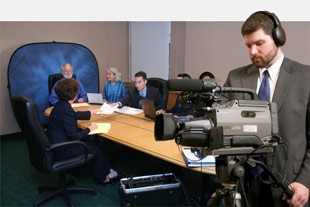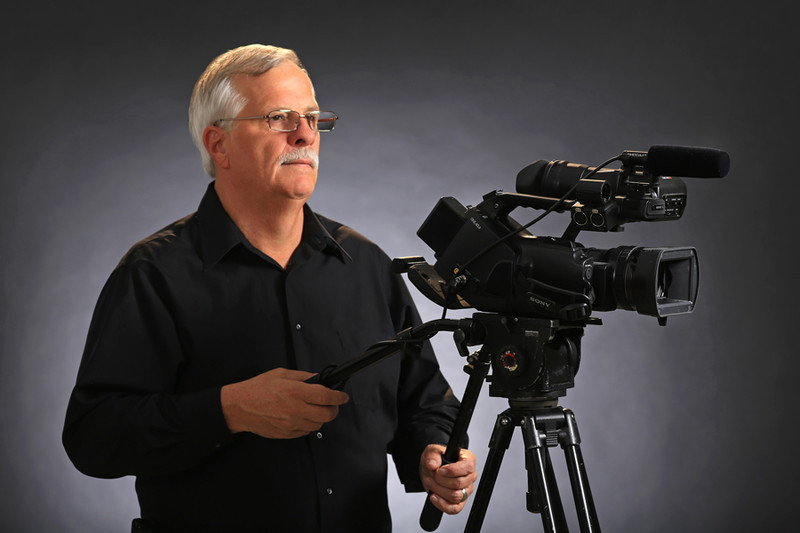Precision-Based Legal Videography for Detailed Evidence Filming.
Precision-Based Legal Videography for Detailed Evidence Filming.
Blog Article
The Function of Lawful Videography in Depositions and Tests
Lawful videography has emerged as a vital device in both depositions and trials, giving a multifaceted method to recording witness testimonies. As legal experts progressively recognize its value, it prompts a deeper exam of just how these aesthetic records can affect juror assumptions and test end results.

Significance of Legal Videography
Legal videography plays a pivotal role in the documents and discussion of depositions and tests. This customized area incorporates technical skills with legal understanding to create a dependable document of proceedings that can considerably influence case end results. The appearance of legal videography boosts the understanding of witness statement, enabling jurors and judges to observe not just the spoken words but likewise the disposition, emotions, and body movement of the witnesses.
Additionally, legal videography gives an objective account of events, decreasing the potential for misinterpretation that can accompany composed transcripts alone. This aesthetic paperwork acts as an essential tool throughout trial presentations, assisting in a more clear and more influential story for both complainants and offenders. Moreover, the capacity to replay video clip sectors throughout court process allows lawful groups to highlight bottom lines, reinforcing their arguments successfully.
The importance of lawful videography expands beyond the courtroom; it likewise plays an important role in preserving evidence for future reference, whether for appeals or more lawful action. Its integration right into the legal process is vital for guaranteeing a reasonable and exact depiction of the realities, eventually contributing to the pursuit of justice.

Process of Legal Videography
While catching the subtleties of depositions and trials, the process of lawful videography involves several vital actions that make certain premium, precise recordings. A professional legal videographer prepares by reviewing the situation materials and understanding the certain requirements of the deposition or test. This preparation consists of acquainting themselves with the individuals and the context, which helps in recording significant details.
On the day of the recording, the videographer establishes the needed devices, which normally includes high-definition cameras, microphones, and proper lights. Guaranteeing ideal angles and audio top quality is vital, as it directly affects the effectiveness of the recording. The videographer interacts with attorneys and participants to establish protocols, ensuring that every person understands the recording procedure.
During the deposition or trial, the videographer thoroughly tapes the proceedings, paying very close attention to both verbal and non-verbal hints. This consists of recording the attitude and reactions of witnesses and lawyers. After the session concludes, the videographer may edit the video for clearness and compliance with legal standards, generating a last product that properly shows the procedures for future referral and usage in lawful contexts.
Advantages in Depositions
The unification of videography in depositions offers numerous advantages that improve the total process of gathering evidence. One primary benefit is the capability to capture witness testaments with aesthetic and acoustic integrity, offering an extra accurate depiction of the witness's temperament, tone, and body language. This multidimensional approach permits attorneys and courts to examine credibility better than conventional written transcripts alone.
In addition, videographed depositions function as a powerful device for maintaining testament. Needs to a witness ended up being not available for trial, their taped deposition can be played in court, making certain that their proof stays accessible and pertinent. This facet significantly decreases the threat of shedding essential info that might affect situation end results.

Finally, videography improves the total professionalism of the deposition procedure, instilling self-confidence in customers concerning the thoroughness of their legal representation (legal videography). By leveraging technology, lawful specialists can significantly official source boost the effectiveness of depositions
Impact on Tests
In several tests, the combination of videography can substantially affect the presentation of evidence and the jury's perception. Legal videography catches witness statements and crucial proof in a vibrant style, enabling jurors to engage with the material on several levels. This aesthetic element improves the narration facet of a test, providing context and psychological vibration that typical text-based proof may lack.
In addition, video recordings can offer as effective devices for impeachment during cross-examination. When discrepancies develop in between a witness's previous declarations and their court room statement, video clip proof gives an unbiased reference that can persuade jurors' viewpoints. This immediacy and clearness can bolster the trustworthiness of an event's story while simultaneously weakening opposing arguments.

Future Trends in Legal Videography
As we look towards the future of lawful videography, several emerging trends promise to improve its function within the court. One substantial pattern is the integration of synthetic knowledge (AI) in video clip evaluation and editing and enhancing. AI can enhance the process of identifying vital moments in tape-recorded depositions, enabling attorneys to swiftly access pertinent material, therefore improving efficiency in situation preparation.
Additionally, the surge of online fact (VIRTUAL REALITY) and increased fact (AR) technologies is anticipated to change just how jurors experience proof. legal videography. By immersing jurors in a simulated atmosphere, these modern technologies can supply an extra profound understanding of intricate situations, resulting in even more enlightened considerations
Additionally, the enhancing need for remote depositions, sped up by the COVID-19 pandemic, will likely proceed. Lawful videographers will require to adapt to new software application and systems to make certain high-quality recordings in digital settings.
Last but not look at this now least, the growing focus on information safety and security will require more stringent procedures for saving and sharing video clip proof. As the legal landscape evolves, lawful videographers must remain abreast of these trends to preserve their relevance and performance in the judicial procedure.
Final Thought
In recap, legal videography serves a vital function in the judicial process, boosting the honesty of depositions and trials. By catching the nuances of witness testaments, this medium not just maintains crucial evidence however additionally aids in providing info effectively to jurors. The relevance of aesthetic documents in reviewing reputation and facilitating cross-examination can not be overstated. As technology continues to advance, lawful videography is poised to further change its duty within the lawful landscape.
Report this page